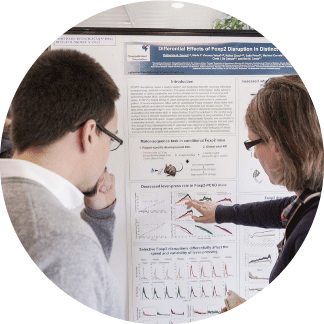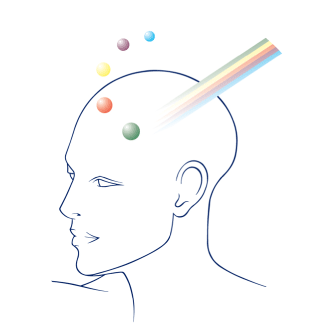News
Top Stories

Can childhood trauma cause insomnia in adults?
Research has shown that adverse childhood experiences result in more dysfunctional ways of shame coping and increase the severity of insomnia in adulthood.

Near-death experiences among ICU survivors
Research with 126 patients admitted to ICU for at least 7 days reveals that 15% reported having experienced a near-death experience.
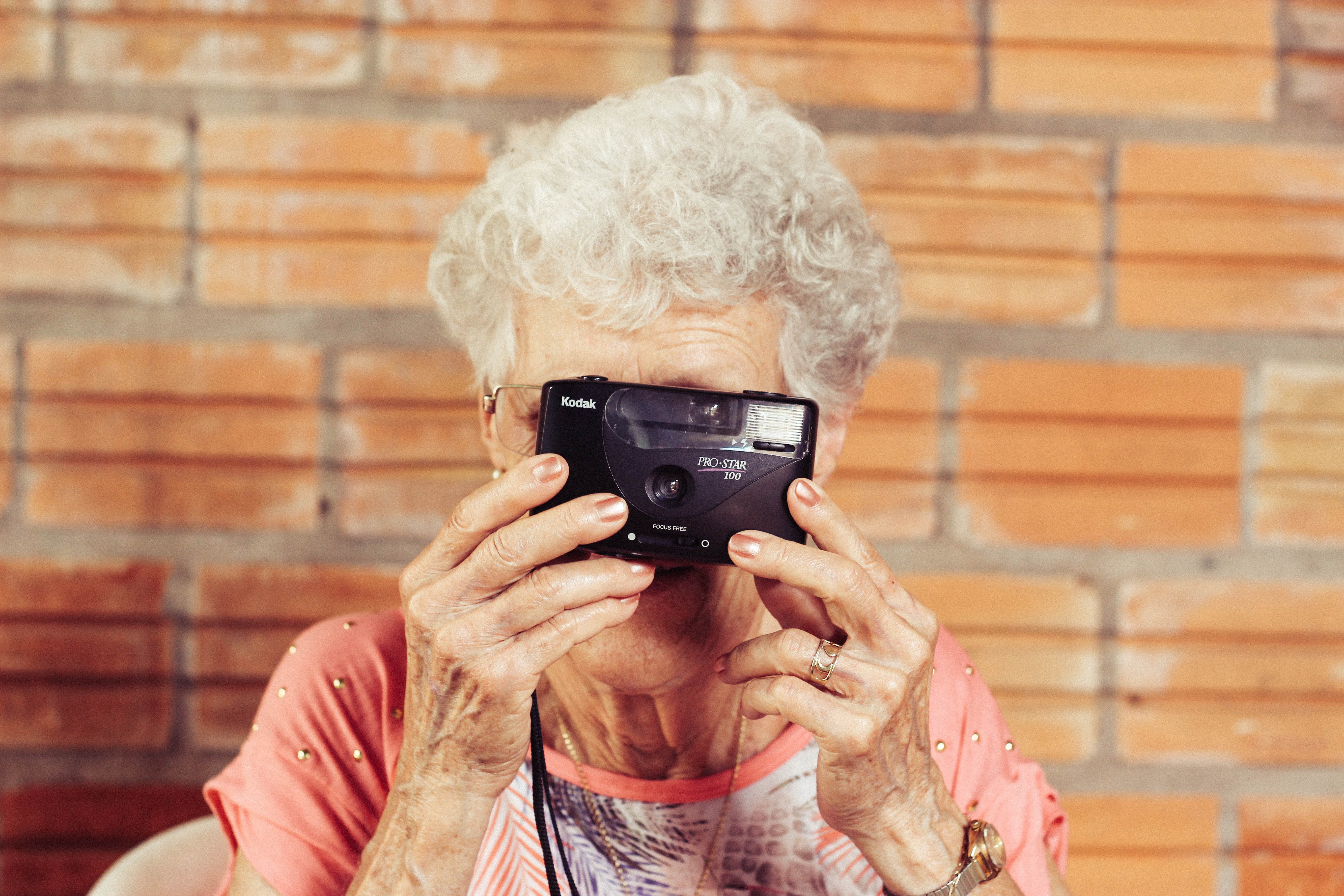
Elderly people can improve episodic memory by neurostimulation of the cerebellum
A study demonstrated that neurostimulation of the cerebellum led to improvements in episodic memory performance in healthy elderly individuals.
News

How do psychedelics influence social cognition?
Psychedelics have sparked interest as potential treatments for social cognition deficits commonly associated with the autism spectrum and social anxiety. Previous studies have shown that psychedelics modulate social processing by altering emotion recognition in facial expressions, joint attention in social interactions, perspective-taking, and empathy. The evidence suggests that the effect may be linked to their impact on social cognition networks. However, the exact mechanisms underlying this impact remain poorly understood. The research team led by Miguel Castelo-Branco conducted a pharmacological study investigating the effects of N,N-Dimethyltryptamine (psychedelic DMT) on functional connectivity in brain regions relevant to social cognition, using a within-subject design. The results supported the hypothesis that DMT induces changes in functional connectivity in brain regions relevant to social cognition, as well as in areas associated with emotion and affective value. Furthermore, changes in connectivity strength were correlated with increases in self-reported psychedelic effects. These correlations highlight the relationship between DMT’s neural effects on socioemotional circuits and subjective experiences. These findings offer insights into the effects of psychedelics on social behaviour, with implications for disorders like social anxiety and depression. Simultaneously, they suggest that increased connectivity, rather than reduced activity, plays a crucial role in psychedelic states. Thus, these results advance our understanding of the therapeutic potential of psychedelics and their effects on the "social brain". This study was supported by the BIAL Foundation, in the scope of the research project 252/18 - Spiritual states induced by ayahuasca, and the involvement of the reward system, and published in Frontiers in Pharmacology, in the article Increased functional connectivity between brain regions involved in social cognition, emotion and affective-value in psychedelic states induced by N,N-Dimethyltryptamine (DMT).
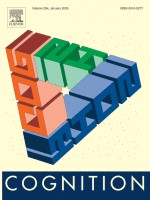
How does body size influence weight perception?
Currently, it is known that the size of an object influences how heavy it feels (i.e., the size-weight illusion). However, it remains uncertain whether the same applies to the body. Elisa Raffaella Ferrè and colleagues conducted an experimental study to investigate how embodying various hand sizes affects the perception of hand weight. Hand size was manipulated using a visual-tactile illusion with magnifying and minifying mirrors. The results showed that the perception of hand weight is flexible and easily altered by the perception of hand size. However, the perceived weight of the hand is invariably underestimated. Although a larger hand feels heavier, while a smaller hand feels lighter, there is still an underestimation of the actual weight of the hand in both conditions. This also contrasts with object perception, where larger objects feel lighter when compared to smaller objects of the same weight. Given that individuals with anorexia nervosa, for example, often experience their bodies as objects, these findings may help deepen our understanding of such disorders and their connection to bodily distortions. This study was supported by the BIAL Foundation, in the scope of the research project 41/20 - Luminous dancing fairies in weightlessness: How gravity shapes conscious experiences, and published in the journal Cognition, in the article Perceived hand size and perceived hand weight.
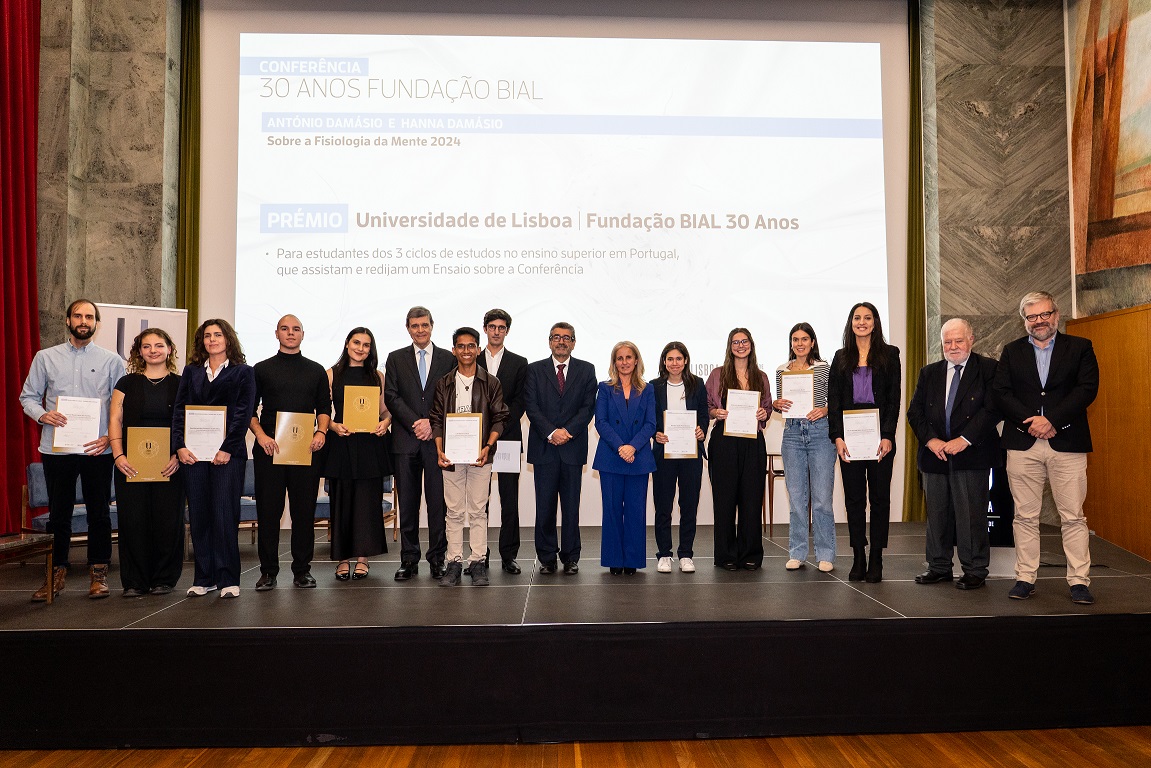
Award Universidade de Lisboa|Fundação BIAL 30 Years honours Medicine, Psychology and Philosophy students
Academic competition in António Damásio and Hanna Damásio lecture aims to stimulate students' capacity for reflection, interpretation, and critical analysis.




